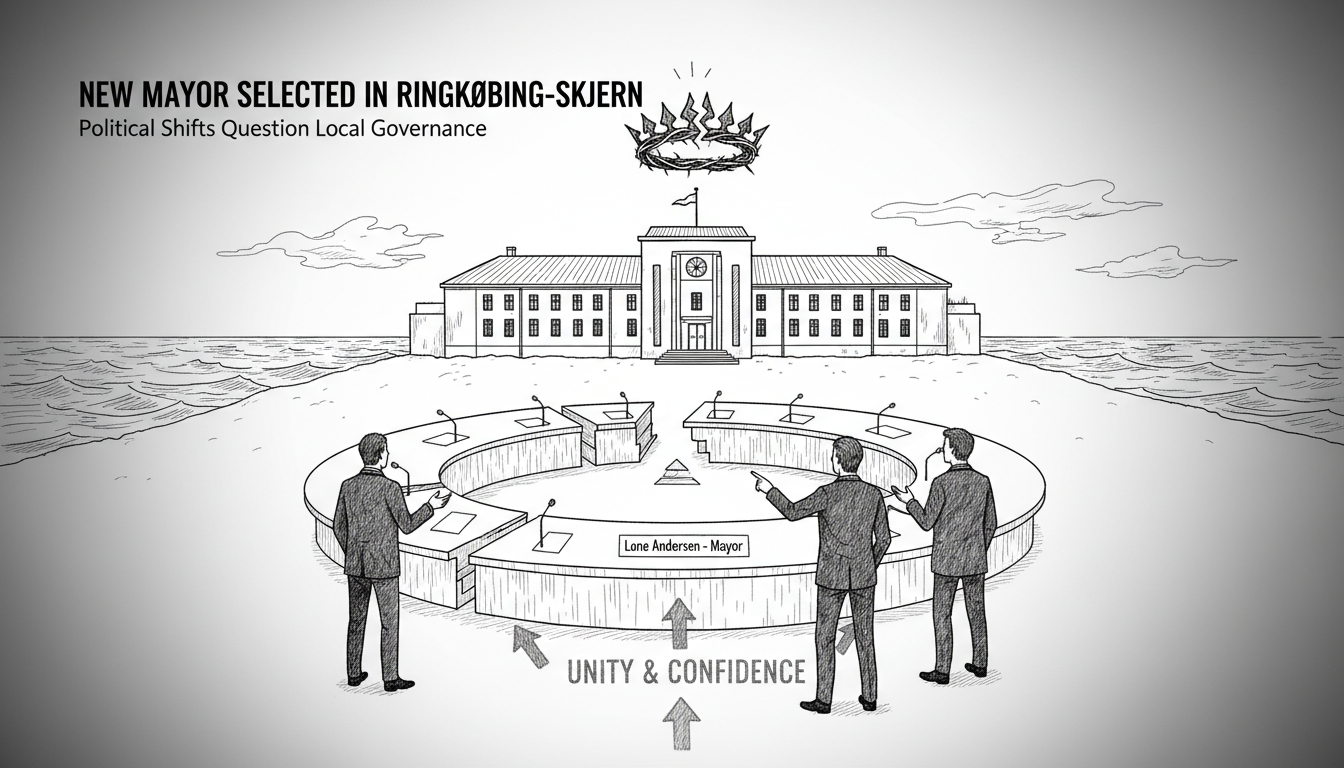Ringkøbing-Skjern Municipality has finally settled on a new mayor after weeks of political maneuvering. Lone Andersen from the Venstre party will lead the local government following a third coalition agreement in recent weeks. This decision comes after two previous mayor candidates failed to secure lasting support from the same political parties.
The political landscape in this Danish municipality has been particularly unstable since the local elections. Voters witnessed three different mayor candidates emerge from the same coalition partners. First, Mads Fuglede from the Denmark Democrats gained support, then Conservative Lennart Qvist, and now finally Venstre's Lone Andersen.
Local residents might understandably question the stability of their local government. The frequent changes in leadership create uncertainty about long-term planning and policy consistency. Such political volatility can impact everything from school reforms to elderly care services in Danish municipalities.
Niels Rasmussen from the Socialist People's Party expressed disappointment with the process. He described the initial negotiations as rushed and superficial. The focus seemed more on power distribution than substantive policy discussions, he noted in local media interviews.
The new mayor acknowledges these concerns about credibility. Lone Andersen understands that citizens might view the rapid changes as unsettling. She emphasizes that all procedures were properly followed despite the unusual circumstances.
This situation reflects broader challenges in Danish local politics. Municipal governments balance competing interests while maintaining public trust. The welfare system depends on stable administration to deliver consistent services to all residents.
Ringkøbing-Skjern's experience demonstrates how coalition politics can create instability. The same parties—Venstre, Conservatives, Social Democrats, and Socialist People's Party—supported all three mayor candidates. This suggests deeper alignment issues beyond individual personalities.
Venstre holds eight of twenty-nine council seats in the municipality. The current governing coalition commands fifteen mandates total. This slim majority requires careful negotiation and compromise to maintain governing stability.
Danish integration policies often depend on consistent local leadership. Frequent political changes can disrupt long-term social programs and community initiatives. Stable administration helps ensure that integration efforts and social services continue uninterrupted.
The new mayor faces the challenge of uniting a divided council. Building trust among coalition partners and the broader community will be essential. Her success could influence how other Danish municipalities approach similar political situations.
Local governments across Denmark watch these developments closely. Ringkøbing-Skjern's experience may inform how other municipalities handle coalition building and leadership selection in the future.

